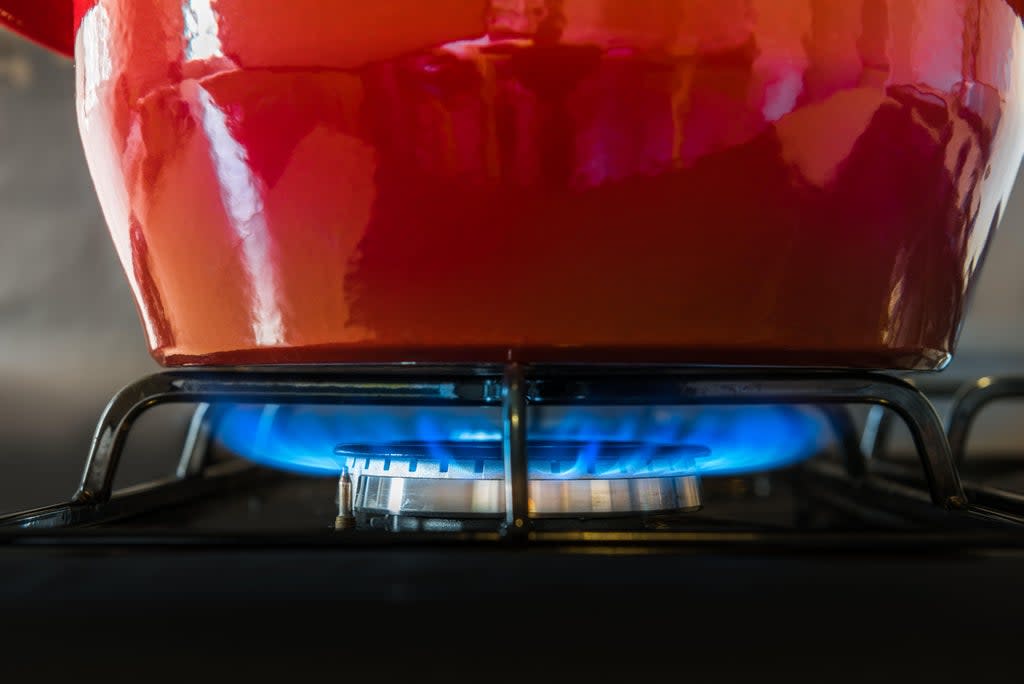As prices soar, here are 13 tips for reducing your energy use at home

With a winter of discontent on the cards, at least as far as our energy bills are concerned, chances are you’re extremely concerned about fuel consumption and the amount of gas and electricity you use.
Energy bills for 15 million households are expected to increase by at least £139 to a record high under Ofgem’s latest price cap this month, as suppliers grapple with soaring wholesale prices.
No-one, especially the elderly and families on low-income want the worry of how best to heat the home or be faced with having to choose a shower over a hot soak in the bath, let alone stumbling around in the dark when the clocks go back on October 31.
Here are some tips from Angela Terry, environmental scientist and founder of the green consumer website One Home who says you don’t need to spend a fortune on house renovations to cut your energy bills and make your home more eco-friendly.
We can stop the worst effects of #climatechange
The fight isn't now or never, it's now and FOREVER 💚
Congrats @TheCCoalition @ChrisGPackham #GreatBigGreenWeek #OneStepGreener https://t.co/itR7yLKVno— Angela Terry (@ANGETERRY) September 20, 2021
1. Insulate that loft
Heat rises, which means around a quarter of all home heat loss is via the roof. If you have a loft, make sure it’s insulated. What’s more, make sure that insulation is 30cm thick. Top up the insulation if the depth is less than this.
2. Seal those leaky windows and doors
If you can feel cold air coming in through gaps around window and doors, you can quickly seal them with inexpensive rubber trim found in most DIY shops.
3. Close your curtains
This is a really easy one but so many people leave their curtains or blinds open at night, allowing expensive heat to seep out via windows. Close your curtains from dusk to dawn to maximise the power of your heating.
4. Upscale your window dressing
When buying or making new curtains, go for the thickest material you can afford and add a thermal lining. Same with blinds, choose a thermal option or blackout blinds.
5. Regulate your room temperatures
The ideal temperature is 19 degrees Celsius. Most people overheat their homes. Every radiator has a TRV (Thermostatic Radiator Valve). Make sure they’re not all set to max if you don’t use the room often. In particular, make sure your bedrooms are kept cooler than communal rooms. Your duvet and a hot water bottle can keep you snuggled up at night!
YouTube videos can help you understand how to programme your heating controls, so you only pay to heat hot water and rooms when you need them
6. Glaze over
If you can’t afford double glazing, you can buy secondary glazing instead. It is just an affordable film that you stick over windows, but it can significantly reduce escaping energy – and therefore bills.
7. Put standby on standby
Parasitic energy is the energy wasted when you forget to turn off your TV or computers. It’s literally throwing money away – as well as contributing completely needlessly to global warming. Turn off every machine when you’re not using it.
8. Insulate, insulate, insulate
If you can afford to, insulate your property as much as possible. Cavity wall insulation is easiest and cheapest. This involves foam or beads being injected into the gap between the inner wall and outer brickwork. Older properties built before 1920 may well have solid walls, which will require internal insulation. The best thing to do with this is fit it when you redecorate, as it requires attaching solid insulation boards to your external walls. For a detached house you can save around £350 per year on your energy bills with wall insulation.
Using LED lights is one of the best ways to cut your energy bills. Its energy-efficient lighting technology consumes less power and lasts longer. To know more energy saving tips, log on to https://t.co/H41hGAtJGR
Conservation Soldier#PCRA #ConserveFuture pic.twitter.com/wugCDgrN60— Petroleum Conservation Research Association (@pcraindia) September 22, 2021
9. Lag those pipes
Make sure all internal pipes – including those in your loft – are insulated with lagging, which you can buy from a DIY shop or plumber’s merchant. It will improve your boiler’s efficiency.
10. Green your lighting
Swap any remaining old halogen bulbs for LEDs. Not only do they reduce your carbon footprint, they consume much less electricity and are also much safer, as they emit very little heat.
11. Upgrade your whitegoods
When buying new white goods, like washing machines or dishwashers, always go for a model with an A++ rating, as they are the cheapest to run.
12. Block that chimney
Open chimneys suck all the hot air out of your house. A chimney balloon is an easy and affordable way to keep hot air in and cold air out. A kind of inflated plastic pillow, it also blocks pollution and stops birds or other wildlife falling down.
13. Check your rating
If you want to know how energy efficient your home is, dig out your Energy Performance Certificate (EPC), which provides a rating of your home’s environmental performance. Properties are placed in bands from A to G, with an A rating being the most efficient, and G the least. One Home provides an easy guide to understanding and improving your EPC.
Renters can do it too. If you live in rented property, you have the right to ask your landlord to see the EPC. If the property is rated F r G, by law your landlord needs to make improvements to your home and any tenant can ask for better insulation or other efficiency measures. No doubt more regulations are on their way to tackle climate crisis, so it’s in their interest to act early on this.

